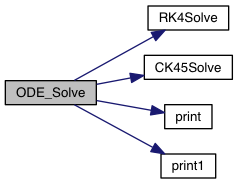148 int i,
n, rhs_err, isgn, useZ=0;
150 double scrh, err, dx_shrink, dx_grow;
153 const double a2 = 0.2;
154 const double a3 = 0.3;
155 const double a4 = 0.6;
156 const double a5 = 1.0;
157 const double a6 = 0.875;
159 const double c1 = 37.0/378.0;
160 const double c2 = 0.0;
161 const double c3 = 250.0/621.0;
162 const double c4 = 125.0/594.0;
163 const double c5 = 0.0;
164 const double c6 = 512.0/1771.0;
166 const double cs1 = 2825.0/27648.0;
167 const double cs2 = 0.0;
168 const double cs3 = 18575.0/48384.0;
169 const double cs4 = 13525.0/55296.0;
170 const double cs5 = 277.0/14336.0;
171 const double cs6 = 0.25;
173 const double b21 = 0.2;
174 const double b31 = 3.0/40.0 , b32 = 9.0/40.0;
175 const double b41 = 0.3 , b42 = -0.9, b43 = 1.2;
176 const double b51 = -11.0/54.0, b52 = 2.5, b53 = -70.0/27.0, b54 = 35.0/27.0;
177 const double b61 = 1631.0/55296.0, b62 = 175.0/512.0, b63 = 575.0/13824.0, b64 = 44275.0/110592.0, b65 = 253.0/4096.0;
188 if (dx < 0.0) isgn = -1;
193 for (n = 0; n < nvar; n++) y1[n] = y0[n];
197 for (n = 0; n < nvar; n++) ys[n] = y1[n] + dx*b21*k1[n];
199 rhs (x0 + a2*dx, ys, k2);
200 for (n = 0; n < nvar; n++) ys[n] = y1[n] + dx*(b31*k1[n] + b32*k2[n]);
202 rhs (x0 + a3*dx, ys, k3);
203 for (n = 0; n < nvar; n++) {
204 ys[
n] = y1[
n] + dx*(b41*k1[
n] + b42*k2[
n] + b43*k3[
n]);
207 rhs (x0 + a4*dx, ys, k4);
208 for (n = 0; n < nvar; n++) {
209 ys[
n] = y1[
n] + dx*(b51*k1[
n] + b52*k2[
n] + b53*k3[
n] + b54*k4[
n]);
212 rhs (x0 + a5*dx, ys, k5);
213 for (n = 0; n < nvar; n++) {
214 ys[
n] = y1[
n] + dx*(b61*k1[
n] + b62*k2[
n] + b63*k3[
n]
215 + b64*k4[
n] + b65*k5[
n]);
218 rhs (x0 + a6*dx, ys, k6);
222 for (n = 0; n < nvar; n++) {
223 y5th[
n] = y1[
n] + dx*(c1*k1[
n] + c2*k2[
n] + c3*k3[
n]
224 + c4*k4[
n] + c5*k5[
n] + c6*k6[
n]);
225 y4th[
n] = y1[
n] + dx*(cs1*k1[
n] + cs2*k2[
n] + cs3*k3[
n]
226 + cs4*k4[
n] + cs5*k5[
n] + cs6*k6[
n]);
238 for (n = 0; n < nvar; n++) {
239 scrh = fabs(y5th[n] - y4th[n])/(1.0 + fabs(y1[n]));
240 err =
MAX(err, scrh);
247 err =
MAX(err, 1.e-18);
251 dx_grow = 0.9*fabs(dx)*pow(err, -0.2);
252 dx_grow =
MIN(dx_grow, 5.0*fabs(dx));
255 for (n = 0; n < nvar; n++) y0[n] = y1[n] = y5th[n];
260 dx_shrink = 0.9*fabs(dx)*pow(err, -0.25);
261 dx =
MAX(dx_shrink, 0.05*fabs(dx));


![\[ \frac{dy}{dx} = f(x,y) \]](form_51.png)
 of the ODE.
of the ODE. 